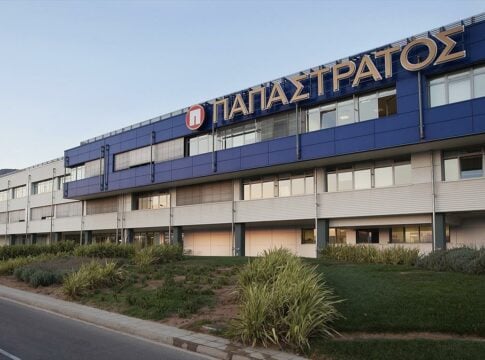Powerful European Central Bank (ECB) President Mario Draghi on Wednesday quickly followed up the EU Commission in stressing the urgent need for the Tsipras coalition government to proceed with steps alllowing for accelerated auctions of foreclosed properties in the still bailout-dependent country.
All of the country’s institutional creditors and Eurozone banking officials have demanded that such auctions resume and be stepped up, given that they are deemed as a necessary tool in reducing the massive amount of debt held by Greece’s systemic banks in the form of non-performing loans (NPLs).
Draghi, in a detailed and written response to a tabled question by a Greek MEP, also referred to deficiencies in a well-known memorandum-era law offering protection from creditors to certain categories of debtors in Greece, mostly mortgage holders.
The ECB president’s response to leftist MEP Nikos Chountis reads:
“…Over time, Greece has made significant progress in improving the governance of its banks. In this respect, the application of the Hellenic Financial Stability Fund (HFSF) Law to the constitution of bank boards is instrumental in helping to achieve the objectives of reducing non-performing exposures (NPEs) and applying prudent lending standards.
Nevertheless, despite the improvements in the Greek banking sector over the past year, Greek banks still have a very high stock of NPEs, which amounts to around 45% of their total exposures as of June 2017, one of the highest levels across all countries in the banking union. As the ECB has pointed out on numerous occasions, it is of crucial importance for the economic recovery in Greece and the forward-looking capital adequacy of Greek banks that swift progress be made on NPE resolution, in line with the targets that banks have communicated to ECB Banking Supervision.
Greek banks have developed strategies to reduce their NPE levels by the end of 2019, based on a number of available instruments, including but not limited to debt restructuring, loan sales, write-offs and liquidations.
“… An effective auction system is an important part of the work towards reducing NPEs, even though banks’ projections do not envisage collateral repossessions or liquidations to be the main avenue for NPE reduction. The holding of auctions is expected to create the appropriate incentives for borrowers and lenders to step up the process of loan restructuring. As auctions have been subject to frequent disruptions and cancellations in recent years, the Greek authorities have taken steps to establish a new system of electronic auctions and ensure the unhindered conduct of both electronic auctions and traditional auctions in courts. The progress that has been made by the authorities in recent weeks is welcome. Further efforts are nevertheless needed to ensure full geographical coverage across Greece.
On the issue of social protection, I would like to mention that the level of private debtor protection which is in place in Greece through the applicable legal framework and in particular the household insolvency law (Law 3869/2010) is aimed at addressing concerns about the protection of vulnerable Greek families that have defaulted on their mortgage loans. At the same time, the application of the household insolvency law has led to significant shortcomings in practice. This goes against the objective of swift NPE resolution, for instance by insufficiently deterring strategic defaulters from filing for protection or scheduling court hearings in the distant future owing to the large number of applications that have overwhelmed the Greek judicial system. The Greek authorities have therefore made a commitment to addressing these shortcomings in the fourth review of the European Stability Mechanism programme.”















